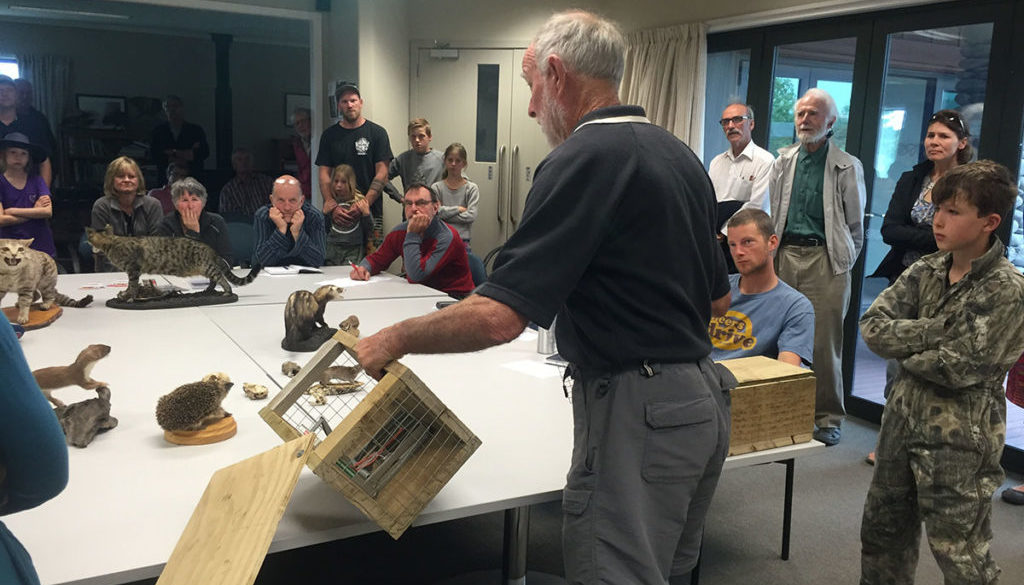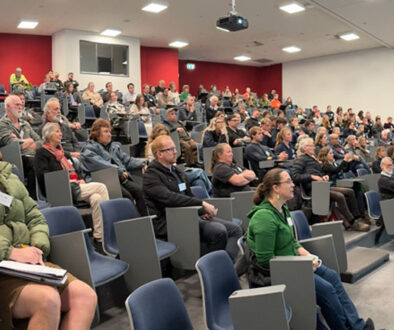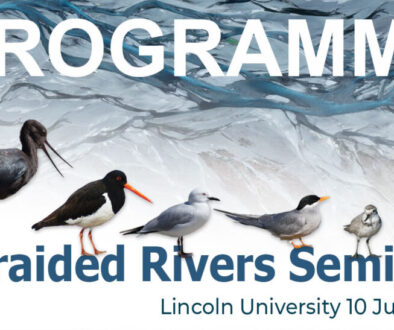Newsletter #11
Hello everyone,
Our trapping workshop in Rangiora last Saturday was a fantastic success, with some 60 people attending. It was particularly encouraging to see so many children and families there. Thanks to DOC for hosting the event, rangers Dean Turner and Sarah Ensor, and Geoff Swailes, the Ashely Rakahuri Rivercare Group’s tracker, and Nick Ledgard for sharing their invaluable knowledge and experience. Photos and links to the videos and files used in the workshop here. Our next trapping workshop will be in Geraldine Saturday 31st October, followed by the ‘Endangered Birds on Braided Rivers’ full day course at Lincoln Events Centre (including lunch) on Tuesday 03 November. Please spread the news as these are FREE events sponsored in part by DOC and ECan as well as BRaid’s sponsors.
Items in these newsletters originate from several sources, most importantly being YOU. So please, keep sending me items that we can share with the rest of the group.
This morning, my email box was swamped with increasingly alarming reports from Europe and North America about the health dangers of using Monsantos’ Roundup (and glyphosate products general). In the US, Monsanto is being sued as evidence mounts that it deliberately hid the risks of Roundup. While most weed clearing on braided rivers is done by hand, glyphosate is our go-to product to control species like crack willow.
But there are also good news stories, with novel ideas for everything from deterring predators to delivering organic pesticides. So grab a coffee, click on the links below, and take heart. Clever people are coming up with innovative ideas to employ rather than fight nature.
Cheers,
Sonny Whitelaw,
BRaid Manager (manager@braid.org.nz)
Tomorrow! (20th October) Orari River Bird Survey
If you can help out, let Sven know: nzsven@yahoo.com or ph: 6937369 or 0211513239
One of our donors, the Isaac Conservation and Wildlife Trust, had their first black stilt/kaki egg hatch just after I sent out Newsletter #10! Well done guys, here’s hoping for a great season.
Rakahuri Manu, Birds of the Ashley River photographic exhibition
A photographic exhibition by Steve Attwood, who has generously contributed dozens of photos to this website and our various campaigns and presentations, is being held at the Chamber Gallery Rangiora Library from 26th October to 26 November.
Current status of the black-billed gull colony on the Waimakariri River
Courtney Thompson, Regional Park Ranger, Environment Canterbury, reports on what’s happening on the Waimak (with a detailed map).
National Red-bill Gull Survey October – January: Phase 2
The red-billed gull is now classified as Nationally Vulnerable, with an expected ongoing population decline of 50–70 % over the next three generations. This survey aims to determine the location and size of active colonies. Click here for more information and guidelines.
Fowl smell could deter braided river bird predators
Braided river habitats in the Mackenzie district could be coated with fowl smells if a scientific trial to help save native birds from predators goes ahead.
Bumblebees Have A New Job: Delivering Organic Pesticides
If you’re already out pollinating, why not just carry a little extra?
New Zealand ‘a cesspit’, chemist behind Opuha DDT claims
Last Wednesday, ECan removed about two kilograms of sediment it said contained DDT granules containing arsenic. The Opihi Catchment Environment Protection Society (OCEPS) has backed the chemist’s claims that arsenic had come from Lake Opuha. Watch the video here. And see the OCEPS report made in 2011.
If anyone has contact details for the Opihi Catchment Environment Protection Society (OCEPS) could they please email me?




